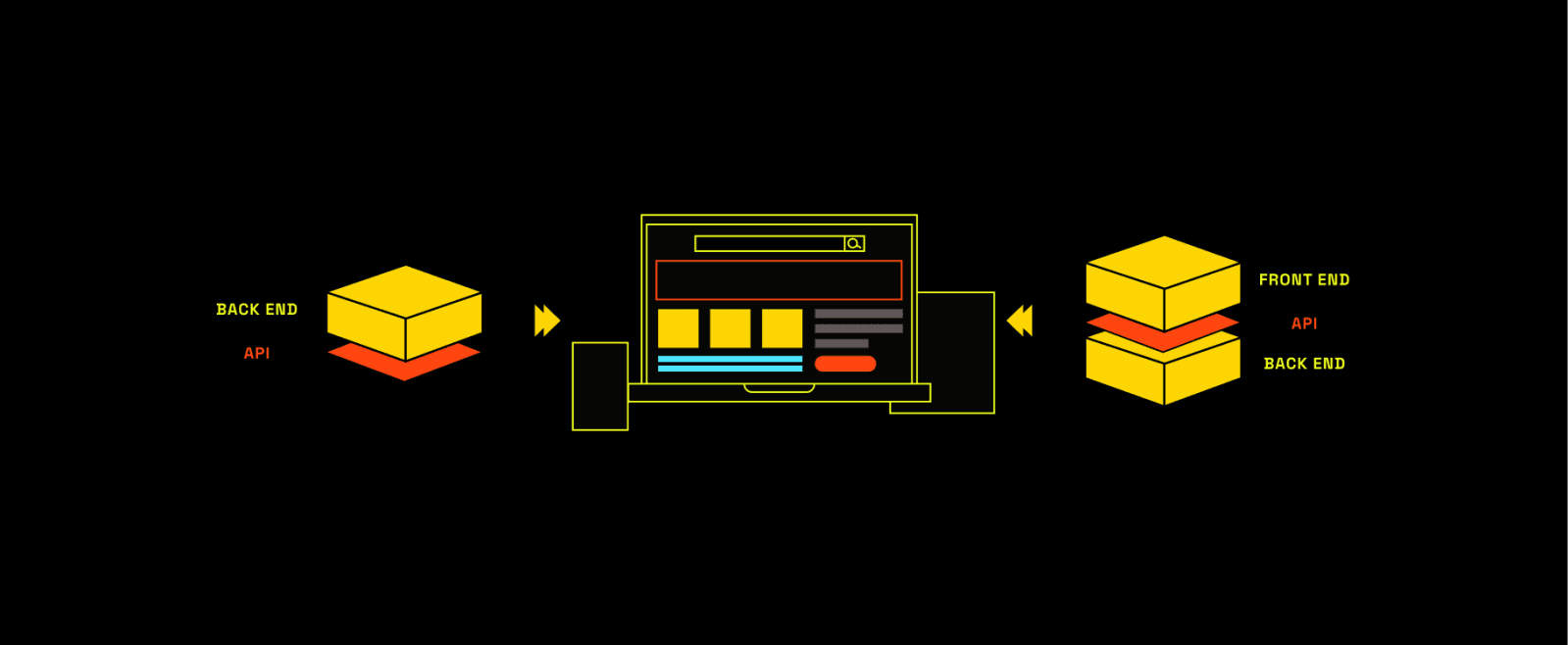Choosing Between OpenCart and Shopify: Guide to the Best E-commerce Platform
You've got a great product idea, an eager customer base, and now you're ready to launch your eCommerce store. The next big question is: which platform should you choose to build your online shop? As an entrepreneur, this is one of the most important decisions you'll make. The good news is, you've narrowed it down to two of the most popular options: OpenCart Vs Shopify.
What is OpenCart?
OpenCart is the fixer-upper from those home renovation shows. Ready to be molded to your vision. It's a free, open-source eCommerce platform that's like a treasure trove for over 350,000 stores globally. Perfect for budget-savvy entrepreneurs, it offers a simple yet potent toolkit to craft your online store. You can add products, play with themes, and connect with customers with just a few clicks.
But here's the cool part – OpenCart is like having an all-access pass to a huge marketplace of add-ons. You can pick from over 8,000 extensions, from nifty shipping tools to marketing integrations, turning your store into a powerhouse.
Key Features I Like from OpenCart:
- Budget-Friendly Freedom: Zero licensing fees mean more cash to invest in your store.
- Customizable to the Core: Dive into the code and tailor-make your store. It's like being the director of your own retail blockbuster.
- Extension Extravaganza: With a vast marketplace, you can plug in features as you grow, kind of like adding more toppings to your favorite pizza.
- User-Friendly Interface: The dashboard is a breeze, making store management as easy as a Sunday morning.
- OpenCart will offer you a world of possibilities right at your fingertips. It's ideal for those ready to roll up their sleeves and bring their unique vision to life, without breaking the bank.
What is Shopify?
Shopify is like your all-in-one eCommerce toolbox. It's a platform where setting up your online store to sell products or services is super easy. Think of Shopify as a blend of a customizable storefront, secure payment gateway, and shipping solutions, all rolled into one. It's great for those without coding skills, thanks to its user-friendly templates. Plus, the Shopify app store is a goldmine, filled with thousands of apps to enhance your store, from adding wishlists to boosting sales with email marketing.
Key Features I Like from Shopify:
- Ease of Use: Setting up and managing your store is straightforward.
- App Store Variety: A wide range of apps to extend your store's functionality.
- Flexible Templates: Professional designs that are easy to customize.
- All-in-One Solution: Manages hosting, payments, and shipping seamlessly.
- Shopify is perfect for those looking for a hassle-free, integrated solution to start selling online quickly.
OpenCart Vs Shopify: Feature Comparison
From my perspective, having worked on various eCommerce projects, Shopify often emerges as the preferred choice for clients who prioritize ease of use, quick setup, and robust marketing tools. It's particularly beneficial for those who want to focus more on business growth rather than the technical aspects of their online store.
On the other hand, OpenCart is favored by clients who require a more tailored eCommerce solution and are comfortable navigating the technicalities involved in setting up and managing their online store.
So before I give you a comparison table for the features, I've distilled some crucial insights from the Shopify vs OpenCart debate:
- User-Friendly vs Technical: Shopify is the epitome of user-friendliness, ideal for beginners or those seeking a smooth, straightforward setup. OpenCart, in contrast, caters to those with a bit more technical savvy, offering greater customization at the cost of a steeper learning curve.
- Marketing and SEO: Shopify excels with its built-in SEO and marketing tools, including seamless social media integration. OpenCart, while customizable, often requires extra steps or extensions for similar capabilities.
- Suitability for Business Types: Shopify is a fit for entrepreneurs and small to medium businesses looking for an all-in-one, low-maintenance solution. OpenCart appeals more to those who desire detailed control and have the technical know-how to leverage its open-source flexibility.
- Setup and Maintenance: Shopify simplifies the e-commerce journey with its hosted nature, eliminating concerns about installation and maintenance. OpenCart demands more hands-on involvement, from setup to ongoing updates.
Now, to make sure you don’t miss out on anything, here is the comparison table -
| Feature Category | Shopify | OpenCart |
|---|---|---|
| eCommerce Tools | - Dropshipping Integration | - Gift Vouchers |
| - Flexible Shipping Rates | - Coupons | |
| - Multi-Language | - Sell Physical or Digital Products | |
| - Product Reviews | - Custom Filters for Product Categories | |
| - Digital Products | - Reward Points | |
| - Gift Vouchers | - Recurring Payments | |
| - Shopify Management App | ||
| Marketing & SEO | - Google Adwords Credit | - Multi-Currency |
| - Sell on Facebook | - Multi-Lingual | |
| - Discount Codes | - Product Reviews & Ratings | |
| - Abandoned Cart Recovery | - Email Marketing | |
| - Auto-Generated Sitemap | - Custom SEO including Meta Titles and Descriptions | |
| - Social Share | ||
| - Blog | ||
| - Custom Metadata | ||
| - SEO Friendly URLs | ||
| Reporting | - Product Reports | - Transaction |
| - Traffic Sources | - Sales | |
| - Google Analytics | - Returns | |
| - Day, Week, and Monthly Reports | - Orders | |
| Payment Gateways | - Shopify Payments | - PayPal |
| - PayPal Express Checkout | - Klarna | |
| - Amazon Pay | - Sagepay | |
| - Klarna | - Worldpay | |
| - Worldpay | - Square | |
| - Sagepay | ||
| App/Extension Store | - Over 3,000 apps for various functionalities and integrations | - Over 14,000 extensions available for various eCommerce functionalities |
| Theme Selection | - 4 free and 65 paid themes, plus more available outside Shopify ecosystem | - Default theme plus additional themes in the marketplace and over 850 on |
| ThemeForest | ||
| Customization | - New OS 2.0 update allows adding sections to all pages, creating custom templates, live editor for changes | - Depends on the theme; popular themes offer customization options, |
| but standard customization is limited | ||
| Support | - 24/7 support via phone, live chat, email, and Twitter | - Community forum and paid support services available |
| Hosting | - Fully hosted platform with PCI compliance, free SSL, unlimited bandwidth and storage, CDN, 99.9% uptime | - Self-hosted; requires purchasing web hosting, SSL certificate, and |
| managing updates and maintenance | ||
| Ease of Use | - User-friendly interface, simple setup process, intuitive dashboard | - Requires some technical knowledge for setup, more complex dashboard |
Pros and Cons of Using OpenCart Vs Shopify
When it comes to choosing an ecommerce platform, you have to weigh the pros and cons of your options. Two of the most popular choices are OpenCart and Shopify.
Pros of Using OpenCart as an eCommerce Platform:
• Free and open source - OpenCart does not charge any licensing fees, and the code is open for developers to modify and extend. • Highly customizable - OpenCart allows you to customize almost every aspect of the store through its admin panel and code modifications. • Wide selection of extensions - There are thousands of free and paid extensions available to add features to your OpenCart store. • Easy integration with payment gateways and shipping carriers.
Cons of Using OpenCart as an eCommerce Platform:
• Steeper learning curve - OpenCart requires more technical knowledge to set up and manage compared to platforms like Shopify. • Requires more maintenance - As an open source platform, OpenCart needs more ongoing maintenance to keep software up to date and secure. • Less out-of-the-box features - Many useful features require installing extensions, which adds complexity.
See, that comes with the territory of an open-source solution. You have to be willing to invest time & technical skills for setup, maintenance and extensions. It’s not for those who prefer a "turnkey" solution.
Pros of Using Shopify as an eCommerce Platform:
• Easy to setup and use - Shopify provides a "turnkey" solution that requires little technical knowledge to get started. The setup process is straightforward and the admin interface is simple yet powerful. • Robust app ecosystem - The Shopify App Store offers thousands of apps to extend the functionality of your store. Many popular apps are free or offer a free trial. • Reliable and secure - Shopify handles the technical aspects so you can focus on growing your business. They keep the platform up to date with the latest security patches and upgrades. • Many sales and marketing tools - Shopify provides features like abandoned cart recovery, email marketing, SEO optimization, and analytics to help you promote and grow your store. • Multiple plan and pricing options - Shopify has plans to suit stores of all sizes, from basic to enterprise level.
Cons of Using Shopify as an eCommerce Platform:
• Limited customization - While Shopify provides some customization options, you have less flexibility to modify the platform code compared to self-hosted solutions. • Higher fees - Shopify's monthly subscription and transaction fees tend to be higher compared to self-hosted platforms. However, these fees cover the cost of hosting, security updates and features. • Dependency on Shopify - Your store relies on Shopify's infrastructure and software, so you have less control over uptime and support. Shopify is best suited for merchants who value an "out-of-the-box" solution and do not require extensive customization. The additional features, ease of use, and reliability come at a higher cost compared to platforms like OpenCart.
Shopify vs OpenCart: Which Platform Offers More Growth Potential?
Shopify has a clear advantage here over OpenCart. With Shopify, you get an all-in-one solution that handles everything from payments to shipping to customer service. This makes it easy to grow without having to integrate lots of third-party apps.
Shopify also offers more advanced features like:
- An app store with thousands of integrations to help your business expand.
- Built-in dropshipping, wholesale, and multi-channel selling features.
- Automated email marketing, customer segmentation, and personalization tools.
- Analytics and reports to gain insight into how your store is performing.
On the other hand, OpenCart requires a lot more work to set up and scale. You’ll need to manually install apps and themes, as well as handle updates yourself. OpenCart also lacks many of the built-in features Shopify offers, like abandoned cart recovery, customer profiles, and multiple staff accounts.
For Small Businesses -
- Small businesses often want to scale quickly. Shopify removes many of the obstacles that OpenCart presents.
- With a robust feature set, seamless selling across multiple channels, and an ecosystem of apps and integrations, Shopify provides a clear path for growth that doesn’t require a huge investment of time or money.
For Large Scale Businesses -
- Bigger businesses generally have more technical resources.
- OpenCart can potentially be customized to suit high-volume needs, but will require substantially more work to achieve the same functionality as Shopify.
Overall, while OpenCart is a viable self-hosted ecommerce solution, Shopify is better equipped to support the long term growth of most online stores. For scalability and ease of expansion, Shopify comes out on top.






